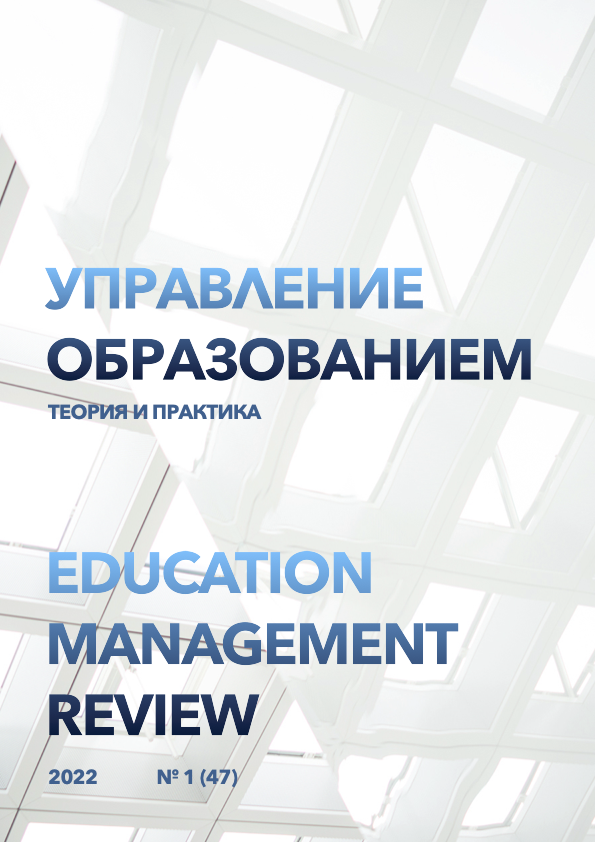Formation of mathematical competence of a future engineer to work in energy companies
DOI:
https://doi.org/10.25726/z8842-2929-7998-qKeywords:
еnergy, pedagogy, training, structure, developmentAbstract
The model of mathematical competence formation should take into account the modern requirements of the labor market and the industry standard of the relevant specialty, reflect the purpose and content of this training, outline the pedagogical conditions of the formation process with the final result - a competent specialist. They also pay special attention to the need to implement the principle of professional orientation in the process of teaching disciplines of the mathematical cycle and propose to expand the content of mathematical disciplines through the inclusion of tasks of the professional direction. Thanks to the integrative approach, it becomes possible to significantly optimize the content content of mathematical cycle disciplines for future engineers in the context of the prospects for use in professional activities. Important issues of the formation of the content of professional training of engineering students are covered in the scientific works of various scientists. In the process of forming the content of mathematical disciplines, it is necessary first to assess the relevance of the material (since the engineering and technical branch is now being updated at a fairly rapid pace), then to identify the degree of prospects for use in professional activities, and at the end to determine professional expediency.
References
Abadjieva, E., Abadjiev, V., & Karaivanov, D. (2020). Bulgarian experience in applying and improving knowledge in the field of theory and application of modern gears. Mechanisms and Machine Science, 81, 47–70. https://doi.org/10.1007/978-3-030-34945-5_2
Cabo, A. J., Wong, J., van der Wal, N. J., Dijkstra, W. P., Klaassen, R. G., Papageorgiou, E., & Menschaart, L. E. (2021). MATHEMATICAL COMPETENCIES AND BLENDED EDUCATION: HOW TO BUILD A RESILIENT COURSE? In Proceedings - SEFI 49th Annual Conference: Blended Learning in Engineering Education: Challenging, Enlightening - and Lasting? (pp. 1525–1530).
Egorova, G. I., Loseva, N. I., Egorov, A. N., Belyak, E. L., & Demidova, O. M. (2019). Regional aspects in a new engineering way of thinking development of bachelors of techniques and technology. Advances in Intelligent Systems and Computing, 907, 65–71. https://doi.org/10.1007/978-3-030-11473-2_8
Georgieva, P. V, & Nikolova, E. P. (2019). Enhancing communication competences through mathematics in engineering curriculum. In 2019 42nd International Convention on Information and Communication Technology, Electronics and Microelectronics, MIPRO 2019 - Proceedings (pp. 1451–1456). https://doi.org/10.23919/MIPRO.2019.8757207
Ilyashenko, L. K. (2020). Formation of mathematical competence as an essential element professional training of future engineers (on the example of surgut branch of tyumen industrial university). Journal of Critical Reviews, 7(1), 336–340. https://doi.org/10.31838/jcr.07.01.67
Ilyashenko, L. K. (2018). Assessment and analysis of the results of experimental data of formation of mathematical competence of future engineers in the oil and gas business. International Journal of Civil Engineering and Technology, 9(3), 597–606.
Ilyashenko, L. K. (2018). Informative characteristics and methods of the formation mathematical competence of future engineer in the oil and gas business. Espacios, 39(5).
Jordaan, T., & Havenga, M. (2019). The SETH Academy: Enhancing learners’ mathematical competence for engineering challenges in higher education. In International Symposium on Project Approaches in Engineering Education (Vol. 9, pp. 18–24).
Konysheva, A. V, & Ibragimova, E. N. (2017). Training of engineers in mathematics at university on the basis of the information cybernetic approach. Eurasia Journal of Mathematics, Science and Technology Education, 13(8), 4379–4391. https://doi.org/10.12973/eurasia.2017.00933a
Kuzmina, E. V, Pyankova, N. G., & Naryzhnaya, N. Y. (2019). Development of Creative Potential of Students of Engineering Specialties Within the Framework of Mathematical and Information Disciplines. Smart Innovation, Systems and Technologies, 139, 50–57. https://doi.org/10.1007/978-3-030-18553-4_7
Novikova, S. V, Sosnovsky, S. A., Yakhina, R. R., Valitova, N. L., & Kremleva, E. S. (2017). The specific aspects of designing computer-based tutors for future engineers in numerical methods studying. Integration of Education, 21(2), 322–343. https://doi.org/10.15507/1991-9468.087.021.201702.322-343
Nuriyev, N. K., Starygina, S. D., & Gibadullina, E. A. (2016). Didactic engineering: Designing new generation learning systems. Integration of Education, 20(3), 393–406. https://doi.org/10.15507/1991-9468.084.020.201603.393-406
Pinto, C., Nicola, S., Mendonça, J., & Velichová, D. (2019). Best teaching practices in the first year of the pilot implementation of the project DrIVE-MATH. Teaching Mathematics and Its Applications, 38(3), 154–166. https://doi.org/10.1093/teamat/hrz004
Poyasok, T., Bespartochna, O., Grytsiuk, O., & Sivyakova, G. (2017). On the expediency of introducing the “mathematics - Theoretical foundations of electrical engineering” integrated course into the educational process. In Proceedings of the International Conference on Modern Electrical and Energy Systems, MEES 2017 (Vol. 2018-January, pp. 332–335). https://doi.org/10.1109/MEES.2017.8248925
Sergeeva, E. V. (2020). The Importance of Mathematics for Future Architects and Civil Engineers. In IOP Conference Series: Materials Science and Engineering (Vol. 753). https://doi.org/10.1088/1757-899X/753/5/052024
Sergeeva, E. V, & Ustselemova, N. A. (2021). Mathematical Modeling in the Training of Future Mining Engineers. In IOP Conference Series: Earth and Environmental Science (Vol. 666). https://doi.org/10.1088/1755-1315/666/5/052057
Shikhanova, E. G., Klenkina, O. V, & Reznichenko, M. G. (2018). The regularities of developing students’ legal culture within a university educational environment [Закономерности формирования правовой культуры будущих специалистов в воспитательном пространстве вуза]. Novosibirsk State Pedagogical University Bulletin, 8(6), 87–103. https://doi.org/10.15293/2226-3365.1806.06
Soboleva, E. V, & Karavaev, N. L. (2020). Preparing engineers of the future: The development of environmental thinking as a universal competency in teaching robotics. European Journal of Contemporary Education, 9(1), 160–176. https://doi.org/10.13187/ejced.2020.1.160
Volegzhanina, I. S. (2020). Formation and development of professional competence of a future engineer in a scientific-educational complex [Становление и развитие профессиональной компетентности будущего инженера в условиях научно-образовательного комплекса]. Perspektivy Nauki i Obrazovania, 43(2), 83–97. https://doi.org/10.32744/pse.2020.2.7




